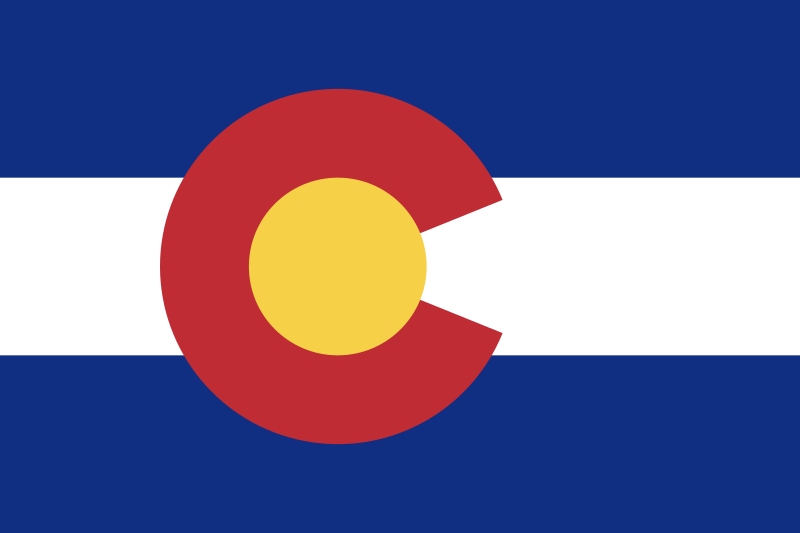Colorado Voters First qualified an initiative for the ballot that would establish top-four primaries and ranked-choice voting (RCV) for general elections.
Sponsors submitted around 209,648 signatures for the initiative on Aug. 1, 2024. The Colorado secretary of state announced on Aug. 29 that the measure had submitted more than the required 124,238 valid signatures and, therefore, qualified for the general election ballot.
Currently, in Colorado, primaries are conducted on a semi-closed basis, meaning that only registered party members and unaffiliated voters may participate in a party's primary (voters registered with other political parties cannot participate). In 2016, voters approved Proposition 108, which allowed unaffiliated voters to participate in partisan primaries. Additionally, in 2016, voters approved Proposition 107, which replaced the presidential primary caucus system with primary elections and allowed unaffiliated voters to participate in those. Both of the 2016 initiatives were sponsored by Kent Thiry, who is also supporting this initiative.
Under the proposed initiative, candidates would appear on one primary ballot regardless of party voters could vote for one candidate per office. The top-four vote-getters would proceed to the general election where voters would rank candidates for each office in order of preference.
Ranked-choice voting (RCV) is a voting method in which voters rank candidates according to their preference and ballots are processed in rounds. The candidate in the last place is eliminated during each round and the voters' second choices get their votes. The process is continued until a candidate wins a simple majority (50 percent plus one) of the vote.
Kent Thiry contributed $1 million of the $2.5 million raised by Colorado Voters First. Thiry said, "I think this is about bringing voice and choice back to the people. Whether they’re Democrats, Republicans or independents, they need their voice and choice back."
Thiry has supported or funded six ballot measure campaigns in Colorado and California between 2016 and 2020, including measures in Colorado to allow unaffiliated voters to vote in primaries, establish open presidential primaries, and create an independent redistricting commission for state legislative and congressional redistricting.
In addition to Colorado, five other states—Alaska, Idaho, Missouri, Nevada, and Oregon—have certified ballot measures for Nov. 5 related to adopting, repealing, or pre-empting ranked-choice voting. This is the most RCV-related statewide ballot measures being featured in any year. There are also two ballot initiatives, one in Arizona and one in Montana, that could lead to the adoption of RCV in these states, depending on how the legislatures choose to implement the proposals if approved.
From 1965 through 2023, six statewide ballot measures proposed adopting ranked-choice voting in four states (Alaska, Maine, Massachusetts, and Nevada). Voters approved four (66.7%) and rejected two (33.3%). The measure receiving the highest rate of approval was Maine Question 1 (2018) with 53.88%, and the measure receiving the highest “no” vote was Alaska Ballot Measure 1 (2002) with 63.73%.
RCV is currently used statewide in Alaska and Maine and in Hawaii for certain elections. Fourteen states contain localities that either use or are scheduled to begin using RCV in municipal elections, and 10 states have enacted legislation prohibiting the use of RCV in any elections.
Colorado voters will decide on 14 ballot measures on Nov. 5, making Colorado the state with the most number of statewide measures on the ballot this year.
Seven of the measures are citizen initiatives and seven were referred to the ballot by the state legislature. Two additional initiatives concerning property taxes that had qualified for the ballot are set to be withdrawn by Sept. 6 and, therefore, will not appear on the ballot.
The measures cover a range of issues, including ranked-choice voting, abortion, and law enforcement funding. The secretary of state’s office recently confirmed that nine citizen initiatives and seven legislative referrals have qualified for the ballot.
Over the last two decades, Colorado voters have decided on 94 ballot measures during even-numbered election years, approving 46 (48.94%) of the measures and rejecting 48 (51.06%). The annual average of measures appearing on the even-year ballot since 2004 was between nine and ten, with a minimum of three and maximum of 14 measures on the ballot.
Additional reading:



